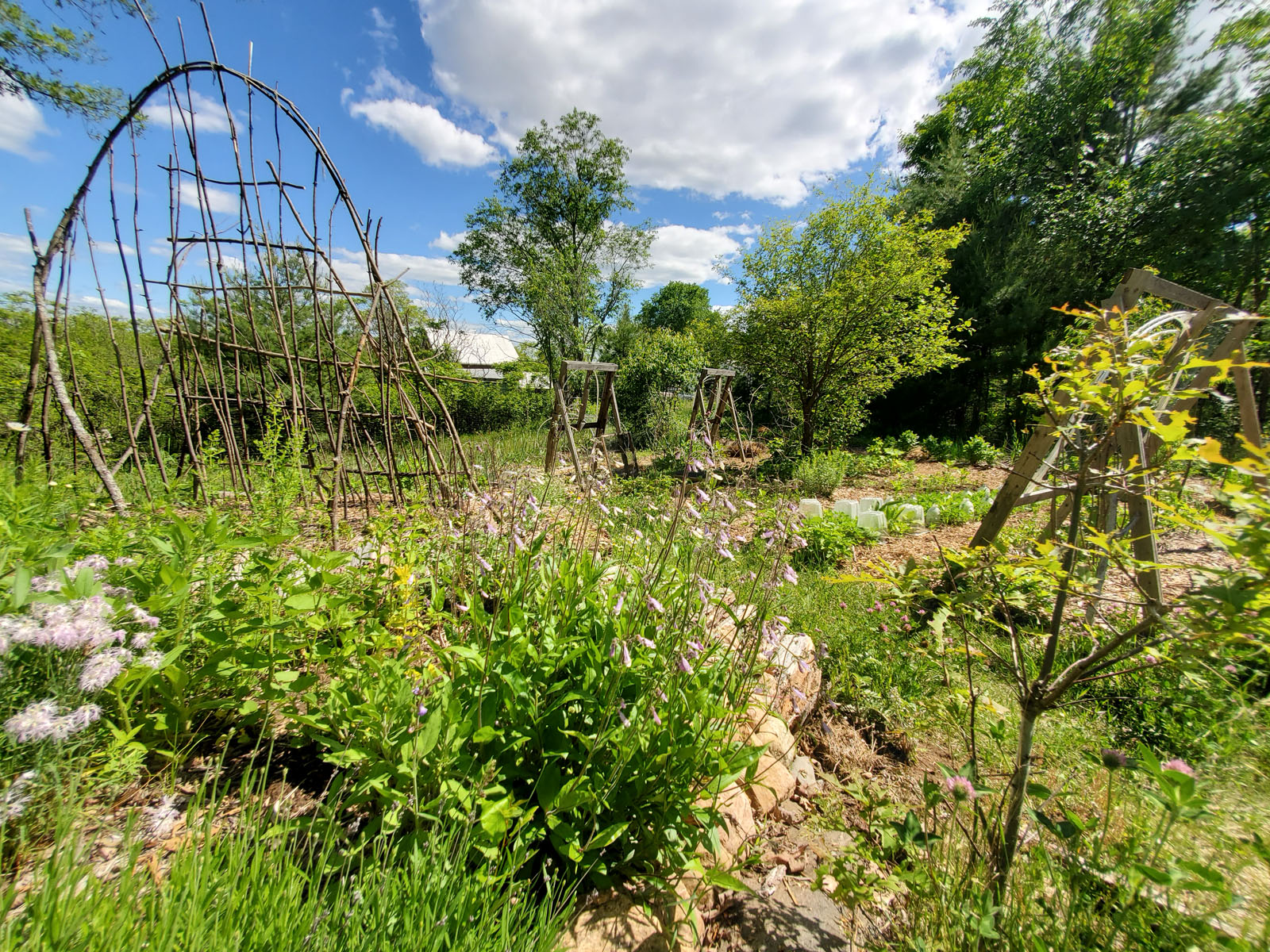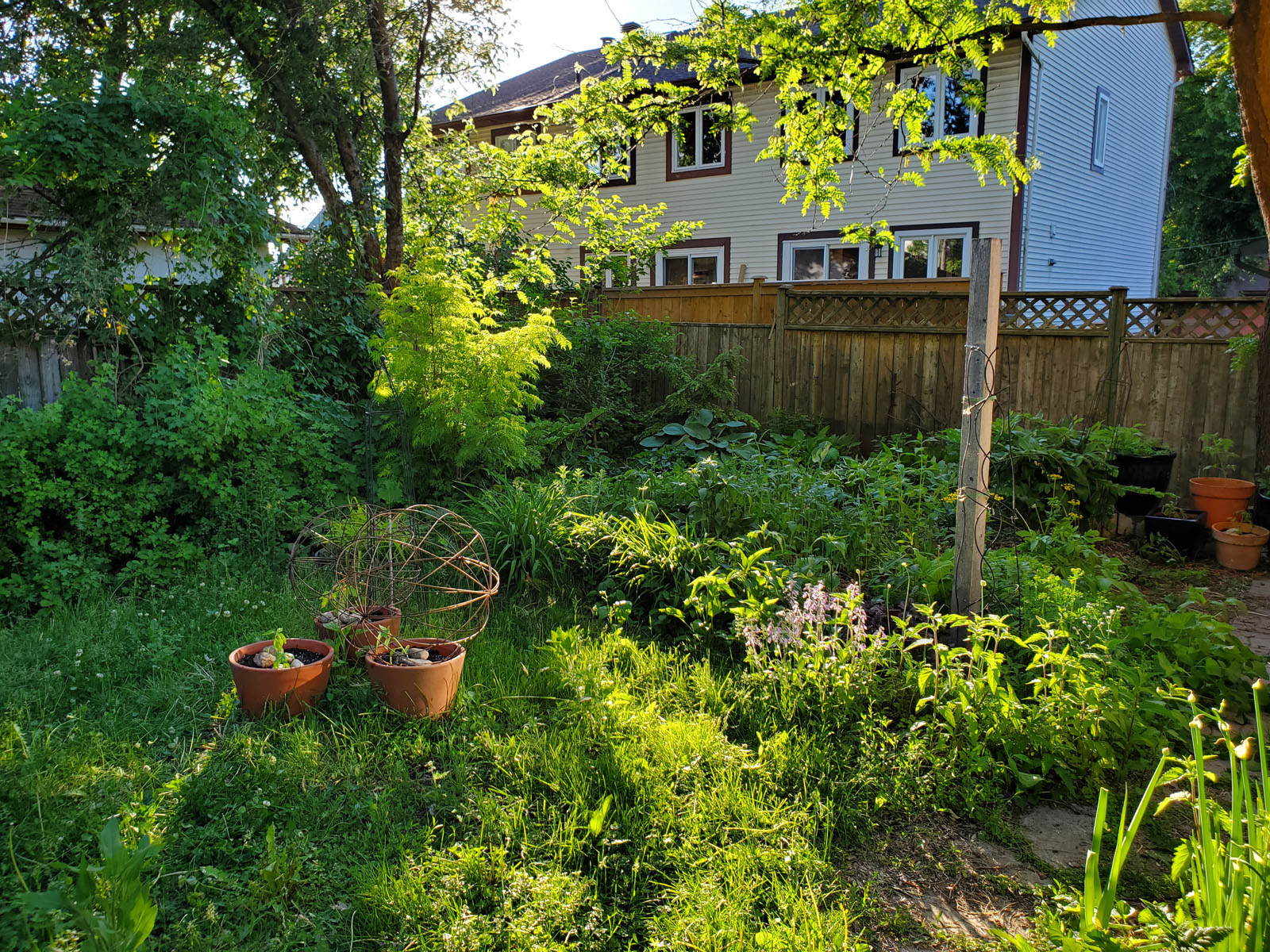- Home
- SOUL Members
- Member Profiles
- Sundaura Alford-Purvis
.JPG)
Sundaura Alford-Purvis Certified Landscape Designer Architectural Technician SOUL Accredited Organic Land Care Practitioner
|
1. How did you become interested in landscape design/horticulture/gardening?
Growing things have always fascinated me. As a young child, a giant squash vine growing from one little seed was the coolest thing ever. My interest and fascination have never waned.
Horticulture was the obvious career path for me. I started out working in the conventional side of the industry and have spent most of the last 22 years looking for better ways to do things. First within conventional horticulture and, increasingly, looking for better ways to be in relationship with plants and ecosystems in urban settings.
2. What are some of the challenges, limitations or opportunities you’ve encountered practising environmentally-friendly gardening and landscaping?
The further I dig, the bigger the challenges seem in some ways, and the more solvable in others.
Much of what is seen as standard practice, even when implemented following organic methods, has roots in the physical alteration of land and ecosystems in entirely human centric ways. Changing this isn’t a simple undertaking and I’m becoming increasingly convinced that horticulture as we are most often taught to practice it, is founded on the principles of control and domination of nature, with humans altering natural systems but refusing to be altered by those same systems.
I’ve been thinking a lot about how this is normalized and presented as being the only option for anyone who wants to have a livelihood working with urban lands. A lot of people come to horticulture because of a love of plants, then drift away because the relationship they find isn’t the one they were looking for. I think that cultivating a land-care perspective, rather than a landscaping one, can help to make room for a different type of relationship with ecosystems for those of us who live and work in urban environments. A lot of clients, and the general public, are very open to a different narrative about the role we can take when working in the garden, what is often missing is support and knowledge-based resources as we look to regenerate a relationship with the life in the places we live and work.
From a practical standpoint, I think that it will be necessary to reach a critical mass of local diversity in land care providers before an alternative livelihood to conventionally practiced horticulture becomes widely feasible. The roles of recyclers, dispersers, nurturers, observers, teachers etc. need to be filled, and those who fill those roles need to be able to find each other and communicate about how to share physical, labour and knowledge resources.
To help with this in my community (Ottawa) I’m working on creating a social/professional hub of people working toward growing their livelihoods in the direction of a care-based relationship with land and ecosystems.
If successful, we’ll be developing a guide and toolkit for creating hubs in other communities. Like any other living system, we need diversity and connection to thrive.
3. What would you say are the basics of regenerative urban landscaping?
Curiosity, intention, observation, adaptation and patience.
As well as:
· Honesty about where we are starting and the social and cultural motivations that brought us to this point.
· Acknowledging that we have a responsibility toward life, human and otherwise, when we are making decisions about how we will interact with and alter ecosystems.
· Patiently observing and responding to, rather than dominating, ecosystems.
It takes time to learn the steps and how to follow the lead, but dancing with the life around us is so much more rewarding than insisting that it march to our own imposed rhythm.
4. How and in what ways does the horticulture industry impact green spaces in our urban areas?
The horticulture industry impacts almost all aspects of both public and private urban green spaces. Either directly, through maintenance and landscaping services, or indirectly through the plants, products and ideas that are made available and promoted. The majority of people within Canada experience almost all of our interactions with ecosystems in urban spaces. This is both an opportunity and a responsibility for those of us who work with those ecosystems. How we frame the human role within urban ecosystems will influence how we value the ecosystems we rely on for our food and clean water or that we disrupt or exploit in the production of materials and the extraction of resources.
5. How can ecological or regenerative landscaping services be positioned so that more people choose to support regenerative land care over conventional landscaping approaches?
I think that most people who are hiring landscapers and designers don’t begin the process with a lot of knowledge about landscaping, horticulture or land care. If we take the time to share about how healthy soil can help plants thrive, how native plants form the foundation of native biodiversity, how growing fresh food is both rewarding and displaces food transported long distances, how natural materials end their lifecycle within the landscape, or by eventually being repurposed, rather than ending up in landfills, and how creating a garden over time requires less extraction of materials from ecosystems, creates far more resilient biology and is so much more rewarding than creating a biologically minimized landscape through the highly disruptive and very expensive process of replacing everything from the sub soil up, people don’t need much more convincing.
Being able to contribute to undoing ecological harms by cultivating a care-based relationship is amazingly empowering. It is one of the most feel-good products of our time and deserves to be presented as such. I’m not apologizing for being green anymore, I’m celebrating it and inviting everyone to join in the fun.
|  Gardens designed and cared for by Sundaura. Photos: S. Alford-Purvis |

